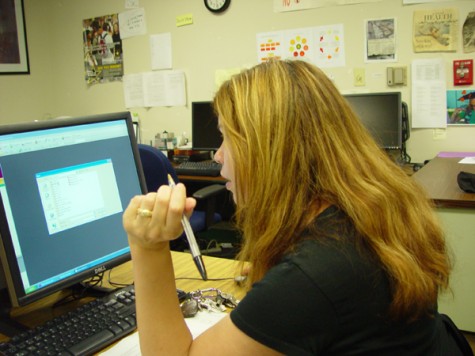The international students at Glendale College gathered on Sept. 22 in the student service local to enjoy a true American cuisine: pizza, brownies and sodas.
The International Students welcome luncheon was also an informational session for new students.
The International Student Association (IAS) talked about coming events such as a day trip to Magic Mountain in October and a two day trip to San Francisco come spring.
An international student in America is given a special visa. When enrolled in a community college one will obtain what is called an F-1 Visa. This Visa allows people to get an education and to stay in the country for as long as the person has a valid I-20, meaning as long as the person is a full-time student.
The international students at GCC have to be enrolled in at least 12 units a semester and pay $181 per unit plus enrollment fees and health fees totaling up to a minimum of $2,512.50 per semester plus an additional $500 fee for insurance, if needed.
F-1 Visa students are not allowed to work in the United States except for a maximum of 15 hours a week on campus. Jobs on campus are, however, very hard to find these days. How the students finance their education in America vary from person to person.
“I am able to study in America due to a federal organization called Centrala Studie Namnden [Central Study Board], also known as CSN in Sweden, which grants Swedish citizens’ student loans and financial aid wherever in the world one chooses to study,” said Swedish liberal studies major Lilit Nadjarian, 22.
Sweden is one of the few countries in the world that offers free education for its citizens. If a Swedish citizen chooses to study abroad instead, the government will provide money for the tuition, fees, school supplies and living expenses. Some of the money is a loan which the students eventually have to pay back and the rest is considered financial aid.
“It is the only reason I and most of the other Swedish students I know are able to get an education in the U.S.,” Nadjarian said. “It is not always trouble-free, however. Sometimes they [CSN] take too long to grant our request for financial support resulting us to fall behind in school and we always have to maintain an above average GPA, otherwise they will withdraw their grant.”
If the grant is withdrawn, Nadjarian can ask for financial help from her parents but only for a limited time. “If I for any reason would not get my CSN I would have to take a break from my studies to go back home and work,” she said.
Both Vietnamese student Le Do, 18, a business major, and Nipuna Vidanapathirana, 21, an aerospace engineer major from Sri Lanka, have their parents to thank for them being able to study abroad.
“I do work on campus, which makes up for my personal expenses,” Do said. This is Do’s second year at Glendale, a place she ended up in by accident. “It was an organization back home that suggested this college. I did not plan to go at first but now I like it a lot.”
Vidanapathirana, who also is the elected president for the IAS, is also very happy he ended up here.
“Mainly I chose GCC for it has the pilot program which I first attended, and is one of the few places that has my current major, now I am very pleased with my choice,” Vidanpathirana said. “I really enjoy the atmosphere here and it is very clean.”
The International Student Association is working hard to take care of the international students at GCC both educational and socially with guidance, meetings, and events such as welcome lunches, road trips and the very popular annual Halloween party. It is a way for the F-1 Visa students to meet and get to know each other.
About 35 percent of the international students are from Japan and the other 65 percent are from different countries such as Sri Lanka, Indonesia, Brazil, China, Vietnam, as well as from different parts of Europe.
When budget crises are affecting almost all the countries in the world one might wonder if the number of international students enrolled have decreased in previous years. Diane Smith, immigration adviser, said the school had noticed the opposite.
“The number of new students has increased this semester, but the continuous students have decreased,” Smith said.
The decrease is mainly due to a big amount of the international students having graduated last spring, but some have been forced to go home due to financial situations.
Glendale College is a very multicultural college and Smith is hoping everyone realizes what an advantage it is to have so many different cultures around.
“We can’t do anything but learn from each other, and having my profession has made it possible for me to meet and learn from people from all kinds of different countries,” Smith said. “It is almost as if I have been to all of those countries without actually visiting them.”
For further information, the international student office is located on the second floor in the San Rafael building.

